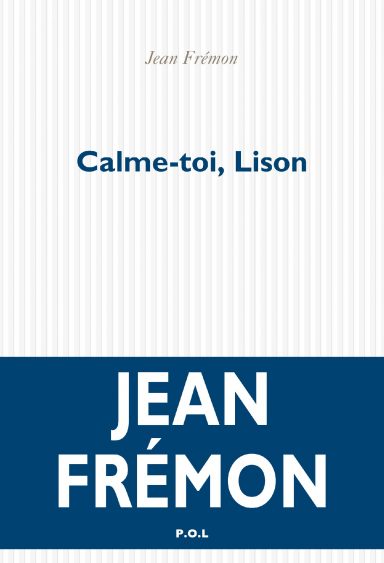Calme-toi, Lison by Jean Frémon
Louise Bourgeois, a free woman.
Louise, Louise Bourgeois, the woman who creates spiders, and so much more… Louise Bourgeois, the woman who tackled drawing, painting and most of all sculpture, head-on. The woman who bent, kneaded, blended all materials. “Sculpture is the only thing that gives me freedom, it is a tangible reality.” Louise, “a phenomenon”, says Jean Frémon, who with this book re-creates her voice and lets us hear the woman whose work has enthralled everyone and fascinated generations of young artists.
This book is neither a biography nor an art critic’s essay, but rather a short imaginary text built upon moments of tension in the life and creative work of Louise, also known as Louison, or Lison. It is a dense, tense, sensitive book, which takes us from the house in Choisy to the one in Chelsea, from Lison to Louise Bourgeois.
“I told myself, ‘Spin your monologue, girl’ ”. Louise Bourgeois’ precept resonates with Jean Frémon, and he, in turn, spins Lison’s interior monologue.
Her life is ending, Louise talks to herself… She remembers…
The artist’s intimate side unravels: her memories, her obsessions, her neurosis, her personal stories… She tells how, through moods and humor, she transformed her childhood, her hardships, and her jalousies into works of arts. Creating shapes was her way of telling her story. The shape of the spider, the quiet beast which protects and looks after, will be her great obsession. The mother-spider figure is the pivotal center of this tale, this fable.
Jean Frémon, whose friendship with Louise spanned over thirty years, embraces her ways. He weaves and spins on what we don’t know of her, and unveils her relentless quest of “a past guillotined by the present”. Louise becomes a weaving fairy who re-creates the past in order “to get rid of it”, she says. Until her last breath in Chelsea in 2010, Louise, when carried away by her emotions, liked to reason herself, “Calme-toi, Lison”, “Calm down, Lison”…
Jean Frémon, Calme-toi, Lison, Editions P.O.L, 128 pages, 2016





